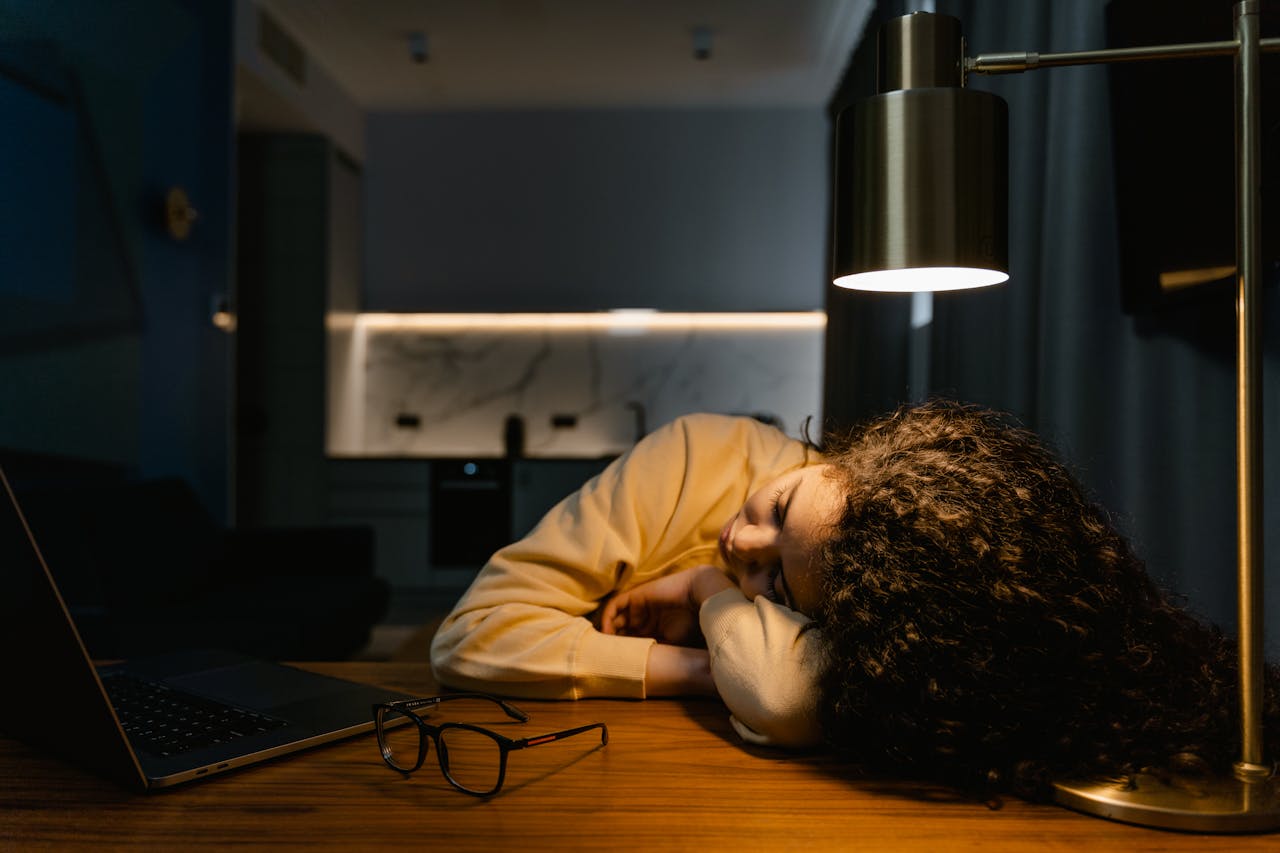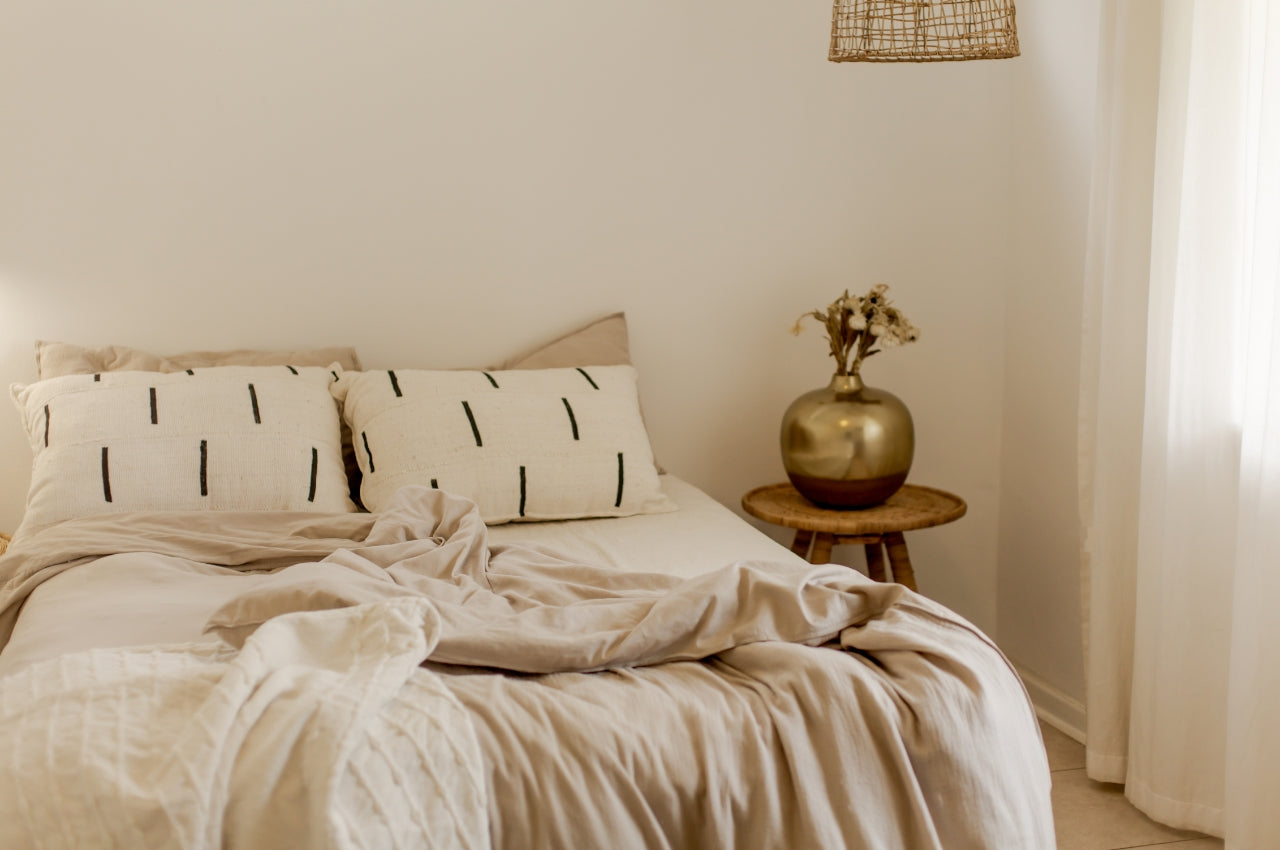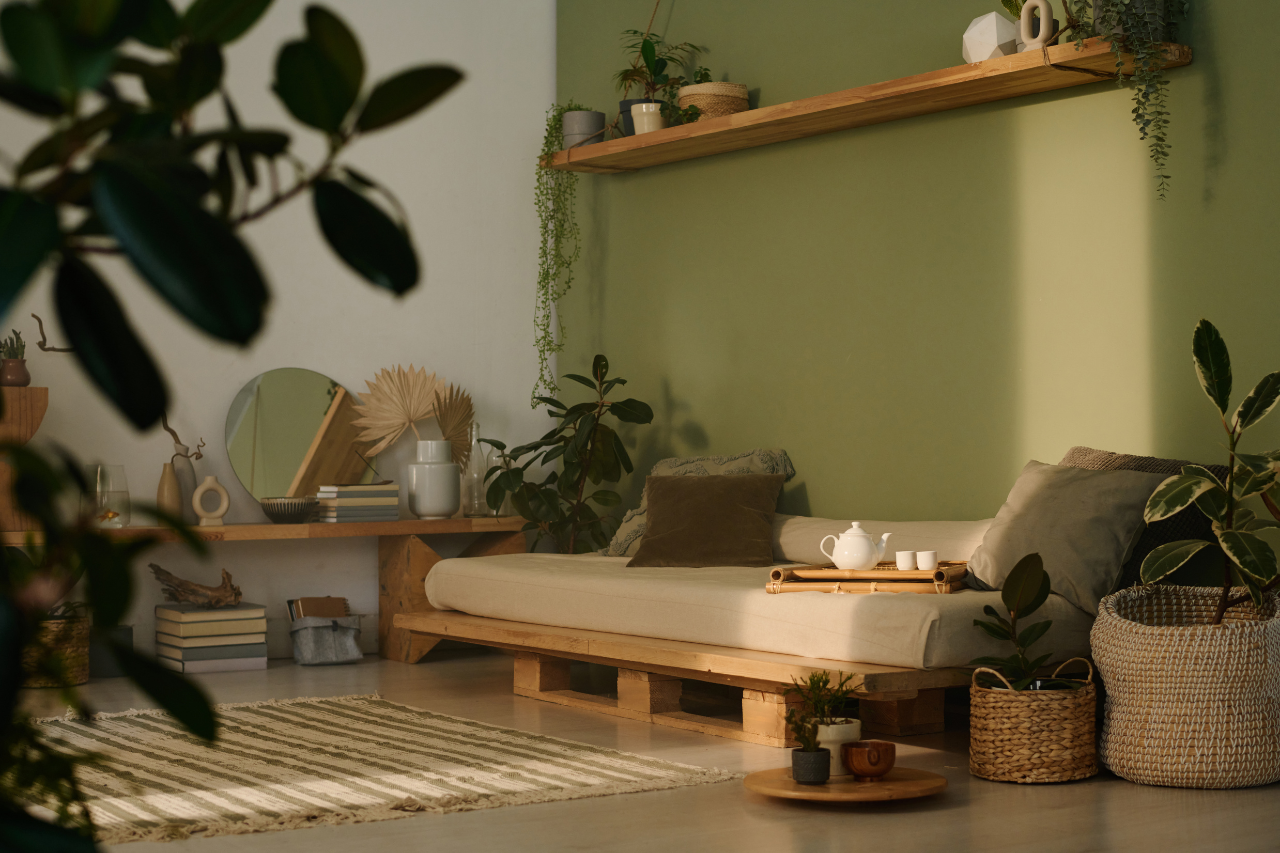The way we work has changed dramatically in recent years. During the pandemic lockdowns, it became startlingly clear that certain jobs can be done remotely at home.
Working from home undeniably offers many perks. However, the setup may also bring a real challenge: keeping a healthy balance between work and home life.
In a traditional setup, work is at the office, and rest is at home. The line is firmly drawn. What happens when your home is your office? When both work and rest can occur in the same space, how do you establish clear boundaries? How can you ensure your job doesn't affect your rest?
How Working From Home Can Affect Sleep Quality
As you can imagine, working from home comes with numerous advantages. A major benefit is time savings from reduced commuting (Aksoy et al., 2023).
The 2023 study revealed that workers can save as much as 72 minutes daily. They allocated "40 percent of their time savings to primary and secondary jobs, 34 percent to leisure, and 11 percent to caregiving activities."
However, working remotely also comes with potential drawbacks. A 2023 umbrella review involving 1,930 records about people's experiences of working from home identified scenarios that may be considered barriers or disadvantages. These include:
-
Tendency to overwork. Some people put in longer hours at home than in the workplace, sometimes without taking a break, and working even on evenings and weekends.
-
Overlap between work and home life. Some studies report a higher work-life balance when there are boundaries between home life and work, especially if the WFH setup is alternated with office days. Ironically, work and family conflict is a prominent disadvantage.
-
Increased sedentary behavior. The review identified mixed results on physical activity. Overall, working from home was linked to increased sedentary behavior and reduced physical activity. But one report interestingly showed that remote workers also tend to be more physically active.

Photo by Meruyert Gonullu in Pexels
Lack of Boundaries and Sleep Health Issues
Another 2023 study, which used 2017 data, explored the relationship between insomnia and working from home among Korean domestic workers.
The study compared the experiences of employees who work from home and in the office. Working from home was associated with sleep disorders, especially nighttime insomnia, and a "worse work-life balance" may affect sleep quality.
In the discussion, it was stated that "as the boundary between family and workspace blurs, it can be difficult to maintain efficient work performance, separate work hours, and focus on family."
Sleep health concerns may be worse for women who work from home. A separate study published in 2024 found that women experience more symptoms of insomnia.
Moreover, women experience more difficulty disengaging from work and struggle to find balance, especially when they tend to have to adapt more to home emergencies. These findings suggest gender inequalities in remote work, although more research is needed to confirm them.
How to Manage Boundaries for Better Sleep Quality
Many might agree that the benefits of working from home still outweigh the possible drawbacks. The setup is simply enticing. However, the possibility of diminished boundaries between work and home life is a concern that's hard to ignore.
To truly maximize remote work, it's also worth exploring how to establish habits that support better boundary management, which may help support improved sleep quality and overall mental health.
Here are some tips to consider:
-
Create a distinct work zone. It's essential to designate a dedicated workspace to help train your brain to recognize "work mode" and "rest mode." A separate home office is ideal, but not everyone has the privilege. Through decor and furniture placement, you can mark out a specific area for work in your space.
-
Avoid working in bed. This trains your mind to associate bed only with rest. If possible, don't work in the bedroom and keep it free from devices and clutter. But again, the bedroom may also be the only room in your home that's conducive enough for working. If so, go back to tip one.

-
Maintain a consistent schedule, even when your work hours are flexible. This helps regulate your body's internal clock as well as prevent work from spilling into personal time.
-
Log off immediately after work. Shut down your laptop and put the work apps notification on silent. Avoid checking emails or taking work calls after your shift.
-
Build a transition routine after work. Don't jump straight into bed after your shift. Allow yourself to decompress from work mode to rest mode by engaging in relaxing activities, such as reading, cooking, or taking a walk.
-
Take breaks in a different room. Better yet, take a short walk or treat yourself for a few hours working at a coffee shop. A change of scenery may improve your mood and support better sleep.
-
Communicate boundaries with others. If you share space with others, set expectations around your work hours. Although it's easier said than done, try to renegotiate home responsibilities if needed to reduce stress.
-
Make good use of a hybrid setup. If you happen to have the opportunity to split your work time between home and office, use it wisely. Treat home days like real work days by sticking to a schedule. On office days, avoid bringing unnecessary work home.
Finally, it's necessary to acknowledge that the onus on boundary-setting isn't solely on the employee. Certain practices often require active support from employers. Some companies embracing a hybrid setup help employees create a functional workspace by providing or subsidizing ergonomic furniture.
The most important thing management can do is promote a culture that respects personal time and mental well-being.
Sleep Hygiene Practices for Better Rest, Overall
Aside from training yourself to maintain clear boundaries between work and personal time when working from home, it's equally important to build healthy sleep hygiene habits. These small but powerful tips might help your body and mind transition smoothly into restful sleep.
-
Try to wind down before bedtime. Start relaxing at least one to two hours before attempting to sleep. Dim the lights and reduce mental stimulation by switching to calming activities.
-
Limit screen time before bed. Avoid using electronic devices at least 30 minutes before sleep. Reducing blue light exposure at night helps maintain natural sleep onset.
-
Follow a consistent sleep schedule. Go to bed and wake up at the same time every day, even on weekends. This helps regulate your circadian rhythm and may improve sleep quality over time.
-
Make sure to get daily movement. Exercise is crucial to your daily routine. Even light exercises like walking and stretching can keep common health conditions at bay. The American Heart Association recommends at least 150 minutes per week of moderate-intensity aerobic activity to help prevent heart disease. Light exercise after dinner, within one to two hours of bedtime, can even help prevent digestive issues.
Seek Professional Help When Needed
Simple interventions and minor adjustments to your routine and bedroom environment may not suffice for serious health conditions. Listen to your body. If you find yourself unable to sleep for days, don't delay seeking medical assistance.
Sources
Lee, L., Nam, O.H., Lee, K.E. et al. Relationship between insomnia and working from home among Korean domestic workers: results from the 5th Korean working condition survey. BMC Public Health 23, 1367 (2023). https://doi.org/10.1186/s12889-023-16268-5
Aksoy, Cevat Giray, et al. Time Savings When Working from Home. National Bureau of Economic Research, Jan. 2023, https://doi.org/10.3386/w30866
Hall, C. E., Brooks, S. K., Mills, F., Greenberg, N., & Weston, D. (2024). Experiences of working from home: Umbrella review. Journal of Occupational Health, 66(1). https://doi.org/10.1093/joccuh/uiad013
Dolce, V., Ghislieri, C., Molino, M. et al. “A good night’s sleep!” How do remote workers juggle work and family during lockdown? Some answers from a French mixed-methods study. Curr Psychol 43, 24915–24929 (2024). https://doi.org/10.1007/s12144-024-06193-0
Featured Photo by MART PRODUCTION from Pexels



Leave a comment
This site is protected by hCaptcha and the hCaptcha Privacy Policy and Terms of Service apply.